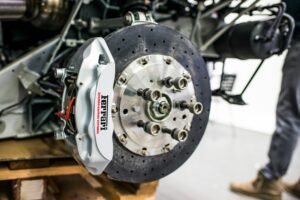 As you embark on your journey to becoming a skilled and responsible driver, understanding the basics of car maintenance is crucial. Explore “Car Maintenance Tips for Beginners” tailored for driving school students in this blog post. Regular upkeep ensures safety, longevity, and optimal vehicle performance. Let’s dive in!
As you embark on your journey to becoming a skilled and responsible driver, understanding the basics of car maintenance is crucial. Explore “Car Maintenance Tips for Beginners” tailored for driving school students in this blog post. Regular upkeep ensures safety, longevity, and optimal vehicle performance. Let’s dive in!
One of the fundamental aspects of car maintenance is keeping an eye on fluid levels. Regularly check and top up the engine oil, transmission fluid, brake fluid, and coolant. Proper fluid levels contribute to optimal engine performance and prevent potential issues.
Maintaining the correct tire pressure is key to both safety and fuel efficiency. Make it a habit to check your tire pressure at least once a month and before long drives. Underinflated or overinflated tires can affect your vehicle’s handling and increase the risk of accidents.
To ensure even tire wear, consider rotating your tires regularly, typically every 10,000 to 12,000 kilometers. Additionally, balancing your tires helps prevent uneven wear and provides a smoother ride. Keeping track of your mileage for these maintenance tasks ensures optimal tire performance and longevity on the road.
 Brakes are your car’s most crucial safety feature. Pay attention to any signs of brake wear, such as squeaking or grinding noises. If you notice these signs or if it’s been a while since your last brake inspection, schedule a professional check-up.
Brakes are your car’s most crucial safety feature. Pay attention to any signs of brake wear, such as squeaking or grinding noises. If you notice these signs or if it’s been a while since your last brake inspection, schedule a professional check-up.
Regular oil changes are essential for maintaining a healthy engine. Follow the manufacturer’s recommendations for oil change intervals, and use the recommended oil type. This simple step can significantly extend the life of your engine.
Clean air filters contribute to better fuel efficiency and engine performance. Check your air filters regularly and replace them as needed. This is a relatively easy and inexpensive maintenance task that can make a big difference.
Properly functioning lights and signals are critical for your safety on the road. Regularly check your headlights, brake lights, turn signals, and taillights. Replace any bulbs that are burnt out promptly.
Keep your car battery in good condition by checking for corrosion on the terminals and ensuring a secure connection. If your battery is more than three years old, it might be a good idea to have it tested or replaced.
Clear visibility is essential for safe driving. Inspect your windshield wipers for any signs of wear and tear, and replace them if they are not effectively clearing your windshield.
Lastly, consider scheduling regular maintenance check-ups with a professional mechanic. They can identify potential issues early on, saving you from costly repairs and ensuring your vehicle is in top condition.
